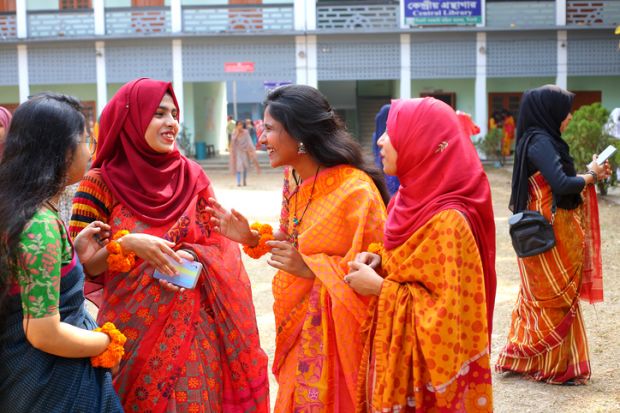Private universities in Bangladesh are expected to begin offering PhD programmes for the first time under planned changes to government regulations, in what academics deem a long overdue move.
Under instructions from the ministry of education, Bangladesh’s University Grants Committee (UGC) is currently devising the policy details, the Daily Sun reported.
With more than double the number of private universities than public ones in Bangladesh, these institutions are keen to conduct more research activities and have long been lobbying for this change, according to Farid Sobhani, a professor at United International University and president of the Bangladesh Society for Private University Academics.
“Allowing private universities in Bangladesh to offer PhD programmes is a welcome development,” he said. “Leading universities possess the quality faculty, infrastructure and necessary qualifications to conduct PhD programmes.”
In 2021, private universities absorbed one-third of students in Bangladesh across all levels. While public universities remain bigger in enrolment terms, the number of students on PhD courses has declined in recent years, from 474 in 2016 to 353 in 2021.
“The number of PhDs needed in our higher education institutes is much higher compared with the number of PhDs produced by the public universities, and not all of them are beyond questionable quality,” said Rezwan Khan, professor emeritus and former vice-chancellor at United International University. “Although late, the decision has come at last.”
Some of Bangladesh’s private universities are widely seen as having grown in quality in recent years, with BRAC University and North South University among the highest ranked in the country in the 2024 Times Higher Education World University Rankings.
“The restriction on private universities offering PhD programmes has been seen as discriminatory,” said Professor Sobhani. “All public universities can offer PhD programmes, yet many leading private universities are now more capable than some public ones.”
However, regulating quality remains a concern, with significant variations in standards among private universities. The UGC will now have to decide the eligibility criteria for institutions to run PhD programmes and how it will oversee the successful ones.
“The main challenge is to keep the quality of PhD research at the right level,” said Professor Khan. “In doing so, it should not be made too difficult, but at the same time not too easy.
“At the same time, more rigorous monitoring will be needed to ensure that the rules are being properly followed.”
Professor Sobhani agreed that there should be clear “selection criteria” and “stringent regulatory oversight” of these institutions.
He added that there should be measures to prevent “political influence from enabling politically backed universities to offer PhD programmes without meeting the necessary criteria”.
For the policy to be a success, Professor Khan said, policymakers should also review how higher education in Bangladesh is funded.
“Research is usually expensive, so sourcing funds will become a challenge,” he said. “The fund from the government so far is given predominantly to the public universities – this has to change to make the new regulation more effective.”
Register to continue
Why register?
- Registration is free and only takes a moment
- Once registered, you can read 3 articles a month
- Sign up for our newsletter
Subscribe
Or subscribe for unlimited access to:
- Unlimited access to news, views, insights & reviews
- Digital editions
- Digital access to THE’s university and college rankings analysis
Already registered or a current subscriber? Login








